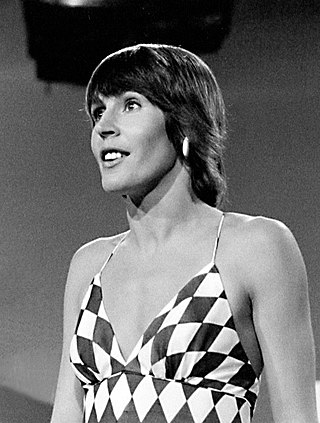
Australian-American singer Helen Reddy (1941–2020), often referred to as the "Queen of 70s Pop", recorded 18 studio albums, seven of which have achieved sales of 500,000 units in the US for which they were awarded Gold certification by the Recording Industry Association of America. One of those seven, I Am Woman, eventually went Platinum by reaching sales of one million copies, and her first compilation album, Helen Reddy's Greatest Hits, was awarded Double Platinum status in 1992 for hitting the two million sales mark. The respective US and Canadian album charts in Billboard and RPM magazine each had appearances by 10 of these LPs during the 1970s.

Andy is the thirty-sixth studio album by American pop singer Andy Williams, released in the fall of 1976 by Columbia Records. Williams is not as focused on covering pop hits and standards on this album and instead relies mainly on original or lesser-known songs. In the liner notes for the album's 2002 CD release, writer Richard M. Erickson explains that the album "was recorded at six different studios to accommodate Andy's touring schedule. One recording session was at a portable studio set up at a Marriott hotel."
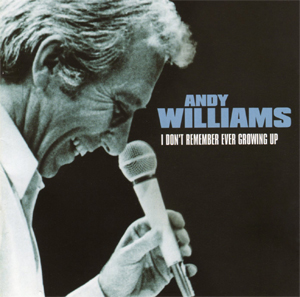
I Don't Remember Ever Growing Up is the forty-third and final studio album by American pop singer Andy Williams, released in the UK by the Demon Music Group in 2007. In the liner notes of the album Williams writes, "Over the past few years I have come across songs that I really wanted to record. I picked 13 of my favorites and set out to make a new record." While the title track is the only new song, the other 12 selections were chart hits for other artists or, as is the case with "Desperado" by the Eagles, received critical acclaim without having been released as a single.

You've Got a Friend is an album by American pop singer Johnny Mathis that was released on August 11, 1971, by Columbia Records. The phrase "Today's Great Hits" can be found above the title on both sides of the record jacket as well as both sides of the LP label as if to emphasize that this is essentially an album covering songs that were recently on the charts. This was a common practice of many vocalists of the period, so much so in fact that fellow Columbia artist Andy Williams also released an album titled You've Got a Friend in August 1971 on which he coincidentally covers seven of the 11 tracks that Mathis recorded for this album.

When Will I See You Again is an album by American pop singer Johnny Mathis that was released in March 1975 by Columbia Records and was again predominantly composed of covers of recent hit songs by other artists.

Mathis Is... is an album by American pop singer Johnny Mathis that was released on February 21, 1977, by Columbia Records and reunited the singer with producer Thom Bell for the first time since their collaboration on I'm Coming Home in 1973. As with that project, Mathis Is... focuses primarily on new songs, the one exception being a cover of "Sweet Love of Mine" from the 1975 Pick of the Litter album by The Spinners.

Friends in Love is an album by American pop singer Johnny Mathis that was released on April 5, 1982, by Columbia Records and included six original songs, two of which were duets with Dionne Warwick.
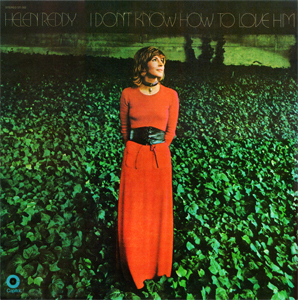
I Don't Know How to Love Him is the debut studio album by Australian-American pop singer Helen Reddy, released on May 10, 1971, by Capitol Records. I Don't Know How to Love Him included her first recording of "I Am Woman". The album made its first appearance on Billboard magazine's Top LP's chart in the issue dated June 5, 1971, and remained there for 37 weeks, peaking at number 100, and got as high as number 40 on the album chart in Canada's RPM magazine. On November 27, 1974, the album received Gold certification from the Recording Industry Association of America, and on March 29, 2005, it was released for the first time on compact disc as one of two albums on one CD, the other album being Reddy's eponymous follow-up that originally came out in the fall of 1971.

Helen Reddy is the second studio album by Australian-American pop singer Helen Reddy, released on November 8, 1971, by Capitol Records. Reddy's selections include tracks by singer-songwriters Carole King, John Lennon, Randy Newman, and Donovan. It debuted on Billboard magazine's Top LP's chart in the issue dated December 4, 1971, and had a seven-week chart run in which it got as high as number 167. On March 29, 2005, the album was released for the first time on compact disc as one of two albums on one CD, the other album being I Don't Know How to Love Him, Reddy's debut LP that originally came out in the spring of 1971.
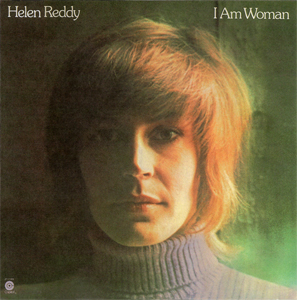
I Am Woman is the third studio album by Australian–American pop singer Helen Reddy, released on 13 November 1972, by Capitol Records. The album included her second recording of the song that gave the album its name, which was also the version that spent a week at number one on the Billboard Hot 100.

Long Hard Climb is the fourth studio album by Australian-American pop singer Helen Reddy, released on July 23, 1973, by Capitol Records and, aside from its primary focus on Top 40-friendly material, had her trying out New Orleans jazz and the English-language version of a recent Charles Aznavour standard. It debuted on Billboard's Top LP's & Tapes chart in the issue dated August 11, 1973, and reached number eight during its 43 weeks there, and in Canada's RPM magazine it peaked at number 14. On September 19 of that year, the Recording Industry Association of America awarded the album with Gold certification for sales of 500,000 copies in the United States. On July 22, 2003, it was released for the first time on compact disc as one of two albums on one CD, the other album being her 1972 release I Am Woman.
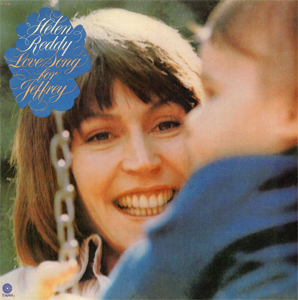
Love Song for Jeffrey is the fifth studio album by Australian-American pop singer Helen Reddy, released on March 25, 1974, by Capitol Records. The album focused on her family, giving special attention to those who had died within the past year. A tribute on the back cover reads: "In memory of my mother, Stella Lamond Reddy, July 1973, my father, Max Reddy, September 1973, and my beloved aunt, Helen Reddy Sr., January 1974."
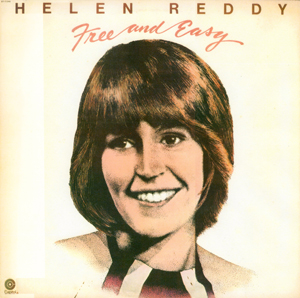
Free and Easy is the sixth studio album by Australian-American pop singer Helen Reddy that was released in the fall of 1974 by Capitol Records. The album included rare forays into rock and vaudeville ("Showbiz"). The album debuted on Billboard's Top LP's & Tapes chart in the issue dated November 2, 1974, and reached number eight during its 28 weeks there. The following month, on December 18, the Recording Industry Association of America awarded the album with Gold certification for sales of 500,000 copies in the United States. In the UK it peaked at number 17, and in Canada's RPM magazine it got as high as number nine on its list of the top LPs in the issue dated January 11, 1975. On January 27, 2004, it was released for the first time on compact disc as one of two albums on one CD, the other album being her other 1974 release, Love Song for Jeffrey.
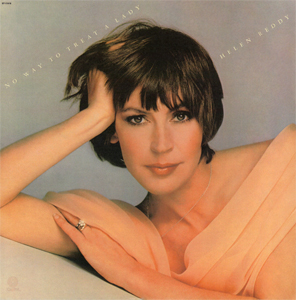
No Way to Treat a Lady is the seventh studio album by Australian-American pop singer Helen Reddy that was released in the summer of 1975 by Capitol Records and found Reddy tackling country pop, bossa nova and blues. The album debuted on Billboard's Top LP's & Tapes chart in the issue dated July 12, 1975, and peaked at number 11 over the course of 34 weeks, and on the album chart in Canada's RPM magazine it got as high as number 13. On January 19, 1976, the Recording Industry Association of America awarded the album with Gold certification for sales of 500,000 copies in the United States, and on August 23, 2005, it was released for the first time on compact disc as one of two albums on one CD, the other album being her 1976 release, Music, Music.

Ear Candy is the ninth studio album by Australian-American pop singer Helen Reddy, released on 25 April 1977 by Capitol Records. The album included a modern take on the doo-wop genre, a Cajun number that gave the Melbourne native her first and only appearance on Billboard magazine's Country chart, and a dark self-parody on which Reddy proclaims: "I don't take no shit from nobody". Unusually, half of the songs recorded for Ear Candy were co-written by Reddy herself, including the second single, "The Happy Girls", Reddy's first self-penned A-side single since "I am Woman". The album's first single, a remake of the 1964 Cilla Black hit "You're My World", gave Reddy a final Top 40 hit.

We'll Sing in the Sunshine is the tenth studio album by Australian-American pop singer Helen Reddy that was released in 1978 by Capitol Records. The album included two songs that were also covered by Johnny Mathis in the first half of that year: "All I Ever Need", which came out on his March release, You Light Up My Life, and "Ready or Not", on which he duetted with Deniece Williams for their June release, That's What Friends Are For. Reddy also ventures into Beatles territory with their rockabilly number "One After 909" and takes on Jeff Lynne's "Poor Little Fool" with accompaniment in the vein of Electric Light Orchestra. This was her first album not to reach Billboard's Top LP's & Tapes chart. On February 23, 2010, it was released for the first time on compact disc as one of two albums on one CD, the other album being her 1977 release, Ear Candy. "Blue" was originally featured on the 1977 animated film Raggedy Ann & Andy: A Musical Adventure.
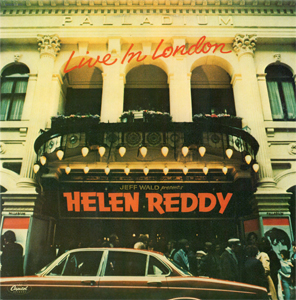
Live in London is the first live album by Australian-American pop singer Helen Reddy that was released in 1978 by Capitol Records and, as with her previous release, did not reach Billboard magazine's Top LP's & Tapes chart. On June 25, 2002, the album was released for the first time on compact disc.

Reddy is the eleventh studio album release by Australian-American pop singer Helen Reddy. Between 1971 and 1978, Reddy had ten studio albums released by Capitol Records, the label also having issued her Greatest Hits album and a concert album: Live in London, the latter issued in December 1978 - which same month Reddy filed suit claiming Capitol Records had shortchanged her $1,793,000, the suit being an apparent bid to win release from the label. However Reddy, issued in June 1979, would be released by Capitol Records, Reddy's tenure with the label extending to include her twelfth studio album: Take What You Find, issued in 1980.
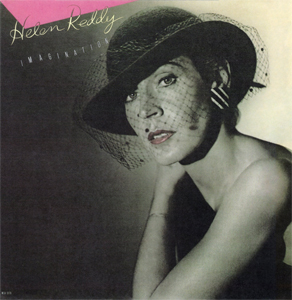
Imagination is the fourteenth studio album by Australian-American pop singer Helen Reddy and was released in February 1983 as her second LP for MCA Records. As with the first of the two, 1981's Play Me Out, it did not reach Billboard magazine's Top LP's & Tapes chart. MCA ended their contract with her afterward; in her 2006 autobiography, The Woman I Am: A Memoir, Reddy wrote, "I was not surprised when I received a form letter from [MCA]'s legal department telling me that I'd been dropped from the label."

Center Stage is the sixteenth studio album by Australian-American pop singer Helen Reddy that was released in 1998 by Varèse Sarabande. Reddy describes the album as the perfect melding of two areas of her career: "the recording studio and the theatrical stage. I tried to select songs from various songwriters in different eras. I've also included a song from each of the musical shows I've performed in."




















